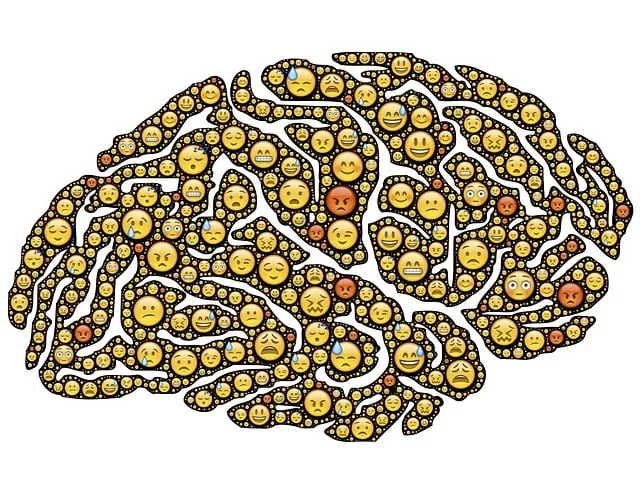In a fast-paced world, prioritizing mental wellness is crucial. Organizations like Kaiser Permanente in Parker offer dedicated mental health phone lines for initial insights into psychological states, enabling personalized care and growth. Self-assessment tools, combined with journaling exercises and evidence-based practices, foster proactive engagement, resilience, and improved mental health outcomes. A multi-step process involving stakeholder input, pilot testing, and integrating compassion cultivation enhances these tools' effectiveness. By making resources like the Kaiser Permanente mental health phone number readily available, patients can actively monitor and manage their mental wellness, supporting timely interventions and tailored support for diverse needs.
Mental wellness self-assessment tools play a crucial role in empowering individuals to take charge of their mental health. As recognized by organizations like Kaiser Permanente, these tools can be game changers, especially with the growing emphasis on digital accessibility. This article explores the development of effective self-assessments, offering a step-by-step guide and highlighting successful integration strategies, such as Kaiser Permanente’s approach. Discover how these assessments enhance mental health support systems, making professional care more accessible via their mental health phone number and Parker-based solutions.
- Understanding the Need for Self-Assessment Tools in Mental Health
- Developing Effective Assessment Tools: A Step-by-Step Guide
- Integrating Self-Assessments into Existing Mental Health Support Systems (Including Kaiser Permanente's Approach)
Understanding the Need for Self-Assessment Tools in Mental Health

In today’s fast-paced world, prioritizing mental wellness is more crucial than ever. Self-assessment tools play a pivotal role in empowering individuals to take charge of their mental health, much like the comprehensive services offered by organizations like Kaiser Permanente, with its dedicated mental health phone number for Parker residents and beyond. These tools provide an initial glimpse into one’s psychological state, serving as a foundation for personalized care and growth. By encouraging self-reflection, they enable people to identify areas of concern, be it stress management, emotional regulation, or coping skills development, which are all integral aspects of Mental Health Policy Analysis and Advocacy.
Regular utilization of mental wellness journaling exercises can further enhance this process, fostering a deeper understanding of one’s thoughts and behaviors. This practice aligns with the broader goal of improving mental health outcomes and promoting well-being. Through such self-assessment tools, individuals can proactively engage in their mental health journey, ensuring they have the necessary guidance to navigate challenges and cultivate resilience, as supported by evidence-based practices like Coping Skills Development.
Developing Effective Assessment Tools: A Step-by-Step Guide

Developing effective mental wellness self-assessment tools is a multi-step process that requires careful consideration. Start by identifying the specific areas of mental health you want to assess, such as anxiety, depression, or stress management, using evidence-based measures validated through research. Organizations like Kaiser Permanente can serve as valuable resources for understanding best practices and data collection methods. The Parker model, for instance, offers a structured framework for evaluating psychological distress, making it an excellent starting point for creating tailored assessments.
Next, involve stakeholders including mental health professionals, researchers, and community members to ensure cultural sensitivity and relevance. Pilot testing is crucial; administering the tool to a small sample group allows for necessary adjustments before full-scale implementation. Consider integrating compassion cultivation practices or stress management workshops organization techniques into your assessment to foster resilience and well-being among users. A robust Mental Health Policy Analysis and Advocacy approach can further enhance the tool’s effectiveness, ensuring it aligns with current research and community needs.
Integrating Self-Assessments into Existing Mental Health Support Systems (Including Kaiser Permanente's Approach)

Integrating self-assessments into existing mental health support systems is a strategic approach that enhances patient care and empowerment. Organizations like Kaiser Permanente have recognized the value of these tools in their comprehensive mental wellness coaching programs development. By making self-assessment resources readily available, such as through a mental health phone number (e.g., Kaiser Permanente’s dedicated line), patients can take an active role in monitoring and managing their mental wellness.
This approach aligns with the broader trend of encouraging individuals to take charge of their mood management. Self-assessments allow for early detection of potential issues, prompting timely interventions and support from healthcare professionals. Kaiser Permanente’s method involves tailoring these assessments to fit diverse patient needs, ensuring that everyone from young adults navigating everyday stress to those dealing with chronic mental health conditions can benefit from this proactive approach.
Mental wellness self-assessment tools are invaluable resources for individuals seeking to proactively manage their mental health. By following a structured guide, as outlined in this article, developers can create effective tools that empower users to assess and improve their well-being. Integrating these assessments into established support systems, such as Kaiser Permanente’s approach, ensures comprehensive care and accessibility. Remember, seeking help is a sign of strength, and with the right resources, like the Kaiser Permanente mental health phone number in Parker, individuals can take control of their mental wellness journey.






